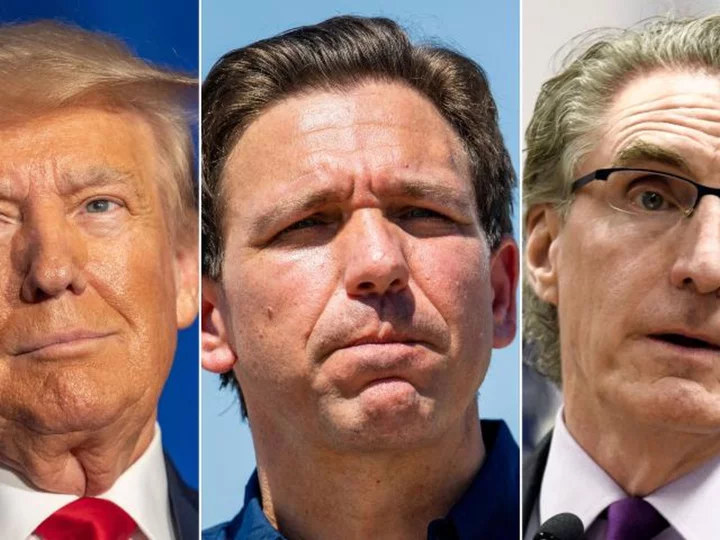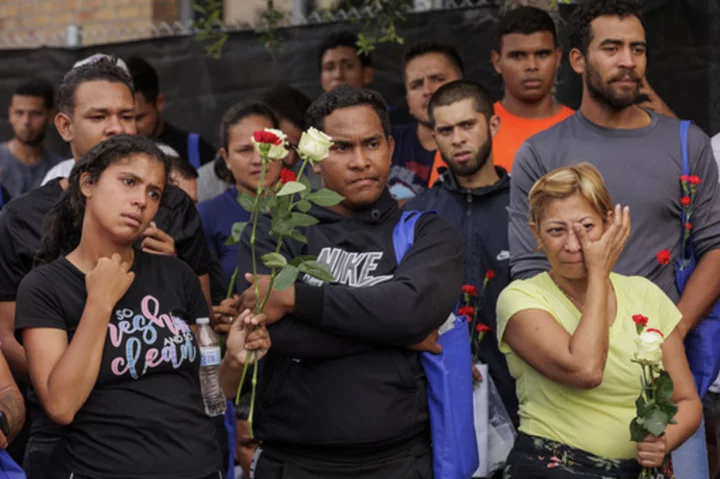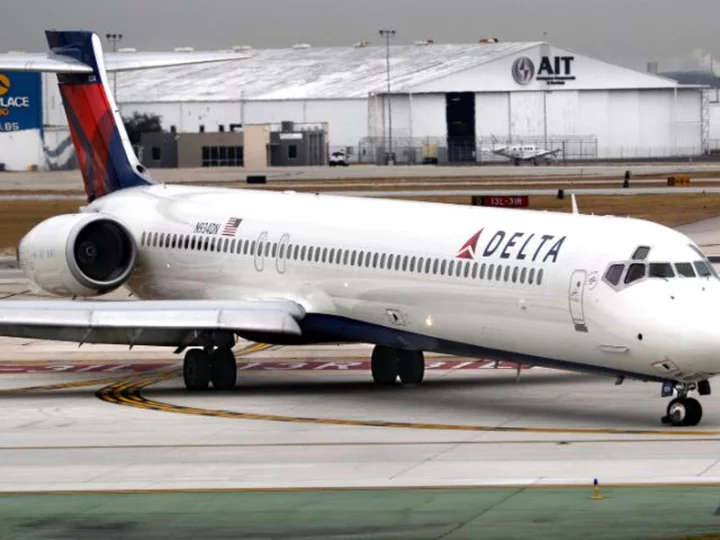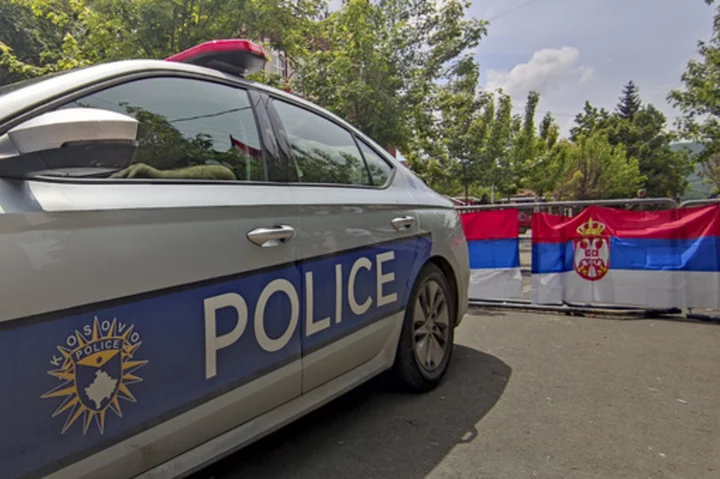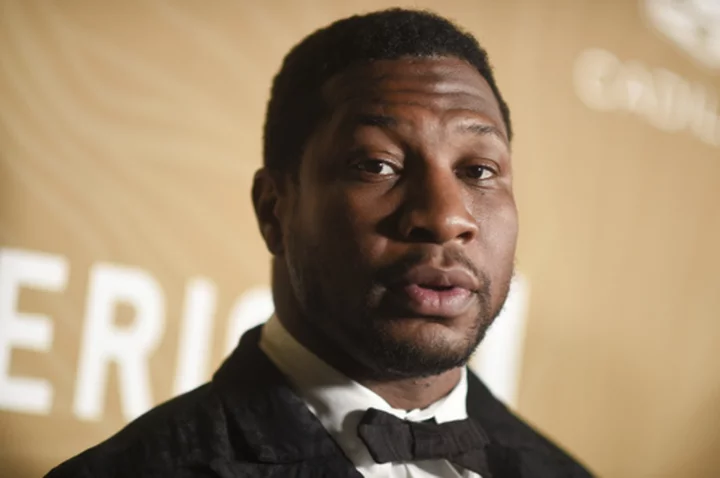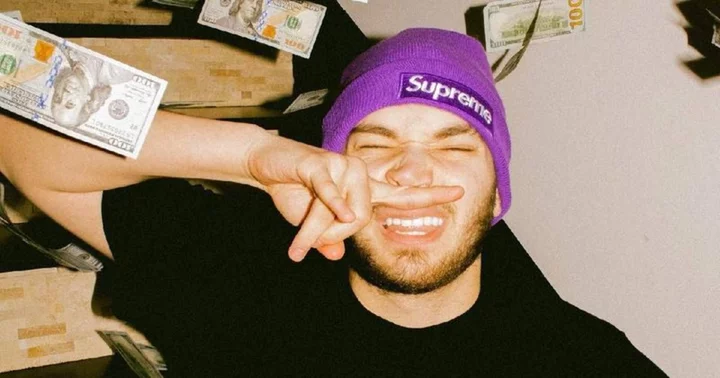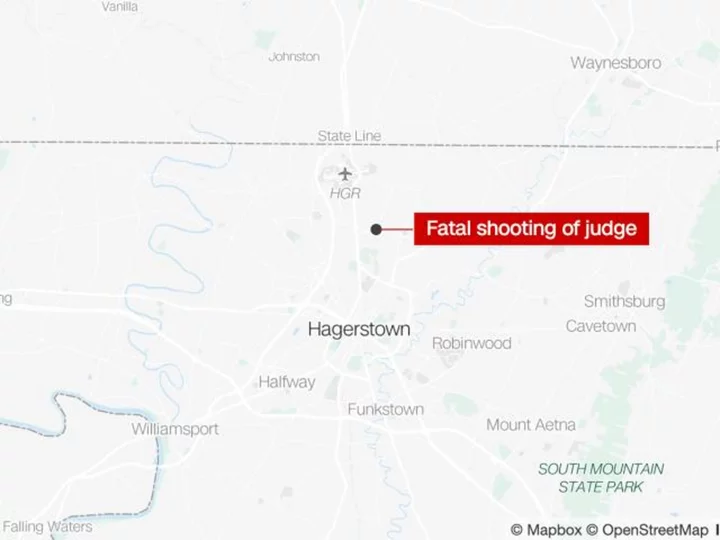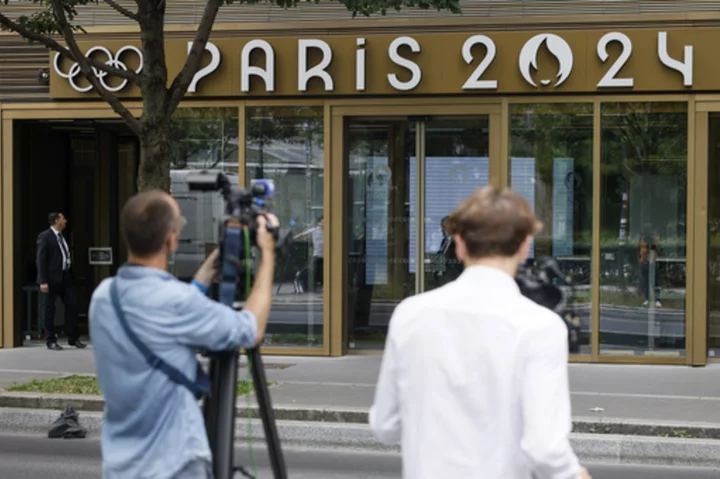Former President Donald Trump is dominating cable airwaves, Florida Gov. Ron DeSantis is betting on Iowa and South Carolina, and North Dakota Gov. Doug Burgum is blanketing New Hampshire as candidates tailor their ad spending with the 2024 presidential race heating up.
Spending data from AdImpact shows how the various White House contenders have different strategies for the early primary map, investing resources in the states and messages they hope can serve as launching pads to the nomination -- spending nearly $70 million along the way.
Allies of Trump, the front-runner for the GOP nomination, have taken a unique approach among the crowded field, devoting more than three-quarters of their ad spending dollars to national cable advertising campaign.
MAGA Inc., the super PAC backing his campaign, has spent $15.7 million on national cable advertising out of a total of nearly $20 million in ad spending so far. The pro-Trump group has split the rest of its spending, a little more than $4 million, between Iowa and New Hampshire.
Reflecting that strategy, in the last month, MAGA Inc. spent $1.6 million on an ad running in major media markets (Los Angeles, New York City, Washington, DC, and Philadelphia) which criticizes the former president's indictment in the classified documents case. The super PAC has also kept ads attacking DeSantis in rotation in the early primary states.
There are also hints at the strategy of DeSantis' camp in the ad spending of a super PAC backing his campaign, Never Back Down. The group has spent a total of about $15.5 million on advertising so far, directing $4.3 million to Iowa and $3.7 million to South Carolina. On Tuesday, the group launched a new TV spot in Iowa proclaiming that DeSantis was "waging a war on woke and winning."
By contrast, the group has spent just $1.3 million in New Hampshire so far. Notably, Never Back Down has spent about $630,000 in Nevada, another early voting state, making it the only GOP group with a significant presence on the airwaves there. The group has also spent about $5 million on national cable advertising.
South Carolina Sen Tim. Scott -- another top advertiser in the early going of the White House race -- has taken a traditional approach to ad budgeting, splitting his advertising between Iowa, where he's spent about $3.5 million, and New Hampshire, where he's spent about $2 million. In both states, he's been a steady presence on the air, running ads that tout his "conservative values" and feature clips from the campaign trail.
And the super PAC allied with Scott has followed a similar pattern, spending about $3.1 million in Iowa and $1.9 million in New Hampshire. Unlike the Trump and DeSantis super PACs, Scott and his camp have spent little on national advertising campaigns.
Meanwhile, North Dakota's Burgum has emerged as the top advertiser in New Hampshire so far, spending more than $2.1 million in the state as the independently wealthy candidate works to raise his profile among voters.
Burgum has also spent $2 million advertising in Iowa. Excluding outside groups, only Scott has spent more on campaign advertising -- and even including the super PACs, Burgum is the fifth biggest advertiser in the race so far.
Overall, since the start of 2023, all campaigns and outside groups have combined to spend nearly $70 million on advertising for the presidential race already. That amount is nearly double what had been spent at this point in the last presidential cycle -- during a competitive Democratic primary -- when all candidates and groups had spent about $35 million in the first six months of 2019.
This year, Trump's super PAC, DeSantis' super PAC, Scott and his super PAC, and Burgum account for over half that total, combining to spend just over $50 million.
Only two other candidates have spent more than $1 million on ads so far: Vivek Ramaswamy and Perry Johnson, both of whom are independently wealthy businessmen self-funding their campaigns.
And while candidates have taken different approaches to investing their resources, the traditional early voting states are continuing to draw the lion's share of the ad dollars. Candidates and groups have spent about $17.4 million in Iowa, $10.9 million in New Hampshire, $3.9 million in South Carolina, and $830,000 in Nevada.
The ad wars are heating up as candidates in the crowded GOP field are scrambling to qualify for the first presidential debate in August.
Several long-shot Republican presidential candidates, with smaller budgets for TV advertising, have been appealing to donors online to help them make the debate stage after the Republican National Committee released the qualification requirements, which include both polling and fundraising thresholds.
As he seeks to nab the 40,000 individual donors required to be on stage, former Arkansas Gov. Asa Hutchinson is up with Facebook ads that read, "I am running for President to bring out the best in America. From securing the border to creating a robust economy, I have the experience to deliver. Chip in $3, $5, or $10 today to help me get on the debate stage and move our nation forward."
Ramaswamy -- who is self-funding his campaign -- is also urging supporters to help him qualify. "To secure a prime spot on the debate stage, we need solid polling numbers AND unique grassroots donors. Can you chip in just $1 today to help get to the debate stage?," one of Ramaswamy's ads says.
And Johnson, the wealthy Michigan businessman, is making similar appeals. "Even though I'm self-funding, the RNC is requiring that I get 40,000 donors to make the debate stage. Can you donate $1 NOW to ensure that I make the cut to share my plan to stop inflation and balance the budget?," reads one of his ads.

